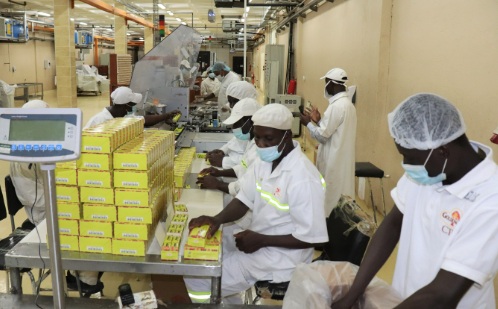The number of business establishments in Ghana has tripled over the past decade, reaching 1.87 million in 2024, up from 638,235 in 2014, according to the latest findings from the Ghana Statistical Service (GSS).
However, employment growth has lagged behind, raising concerns about the structure and sustainability of the country’s business environment.
The 2024 Integrated Business Establishment Survey (IBES I), released on April 3, provides an in-depth analysis of Ghana’s business ecosystem, covering sectoral distribution, employment trends, and formalization.
While the surge in businesses is a positive development, the report highlights key challenges such as informality, financial constraints, and sluggish employment expansion.
Micro businesses on the rise
One of the most striking findings is the dominance of micro-sized businesses, which now account for 90.4 per cent of all establishments—a significant rise from 16.6 per cent in 2014.
These enterprises, typically engaging between one and five persons, have driven the overall increase in business numbers. However, their expansion has not translated into proportionate employment growth, with the number of persons engaged increasing from 3.28 million in 2014 to 6.90 million in 2024—a considerably slower pace compared to the tripling of business establishments.
The share of medium-sized enterprises has declined sharply, while small businesses make up 8.5 per cent of the total. Large enterprises remain rare, constituting only 0.3 per cent of all businesses. Despite their small scale, micro-enterprises are the largest employers, providing jobs for 2.89 million people, nearly double the workforce of large companies.
Financial struggles and informality persist
Financial sustainability remains a significant hurdle for Ghanaian businesses. The report reveals that 70 per cent of establishments generate less than GHS 10,000 annually, while only 0.01 per cent surpass the GHS 1 million revenue mark.
This disparity underscores the economic vulnerability of the majority of businesses, particularly in the informal sector.
Informality remains a dominant feature of Ghana’s business landscape, with 92.3% of enterprises operating outside the formal regulatory framework. Notably, older businesses—those over 50 years old—are more likely to be informal, and recent trends indicate that more businesses are moving into informality rather than formalizing.
While Greater Accra, Upper East, and Upper West have experienced a rise in informal businesses, Central and Northern regions have seen a gradual shift towards formalization.
Digital and green practices gaining ground
Despite these challenges, some positive trends are emerging. The adoption of digital financial services is on the rise, with 37.2 per cent of businesses integrating digital payment solutions. The highest adoption rates are recorded in Greater Accra (50.9 per cent), while the lowest are in Savannah (18.9 per cent).
Additionally, businesses are increasingly embracing environmentally sustainable practices. According to the IBES I report, 28.5 per cent of agricultural businesses and 20.6 per cent of industrial firms have adopted green practices, signaling a gradual shift towards sustainability in the business sector.
Policy implications and the way forward
Speaking at the launch of the report, the Treasurer of the Association of Ghana Industries, Raphael Ayitey emphasized the importance of data-driven policymaking.
He noted, "There is a growing demand for reliable and timely business data, frequently requested by policymakers and development partners. The lack of such data can lead to underestimating the informal sector’s contribution to GDP and distort the structure of manufacturing and productivity over time. With insights from the IBES report, planners and policymakers now have a clearer understanding of both the formal and informal sectors, paving the way for better-structured business operations in the future."
The event also featured presentations from Prof. Samuel Kobina Annim, Government Statistician, and Dr. Faustina Frempong-Ainguah, Deputy Government Statistician. They emphasized the need for strategic investments in infrastructure, digital financial systems, and business formalization to address the challenges highlighted in the report.
